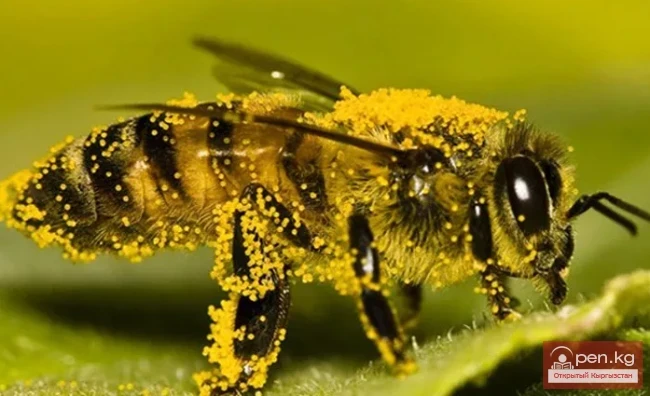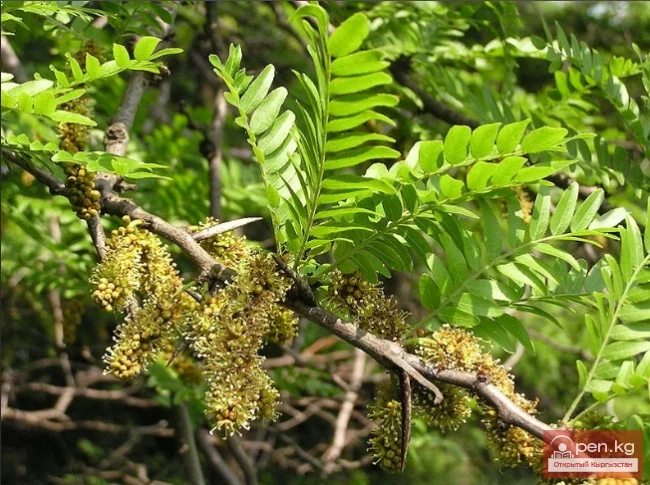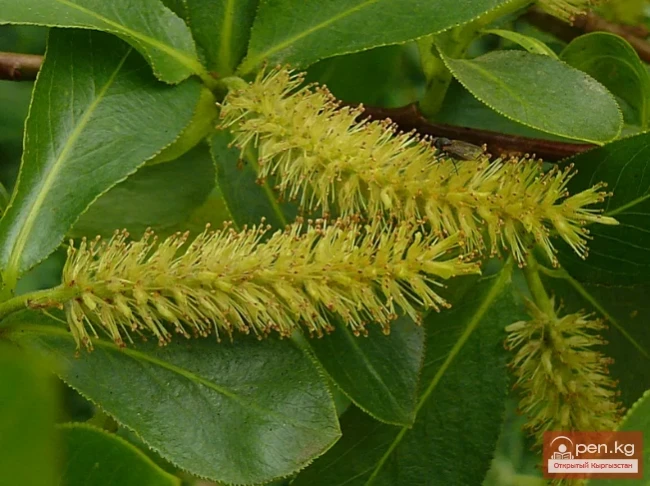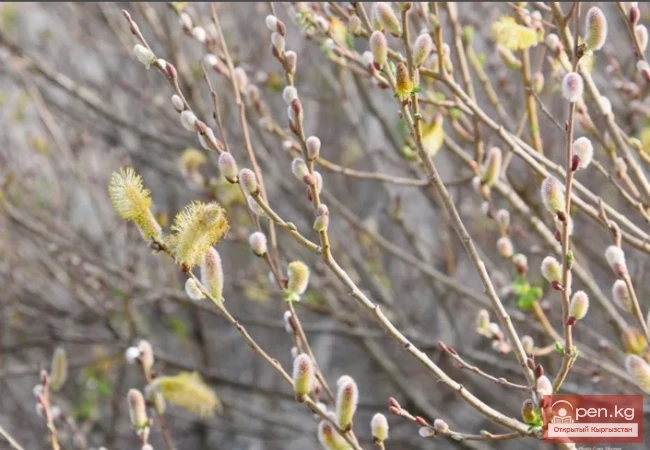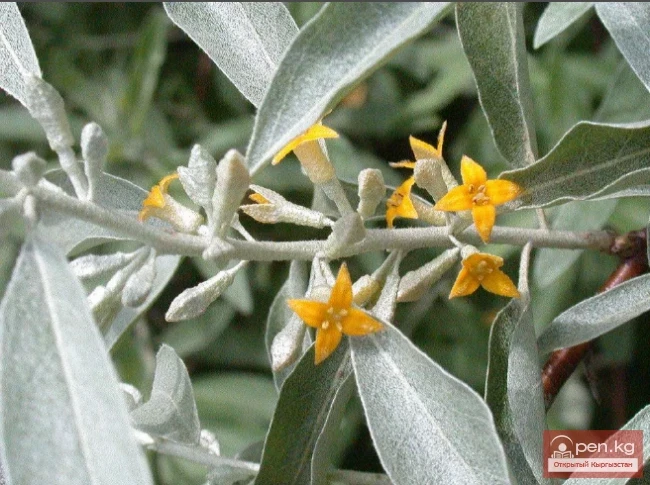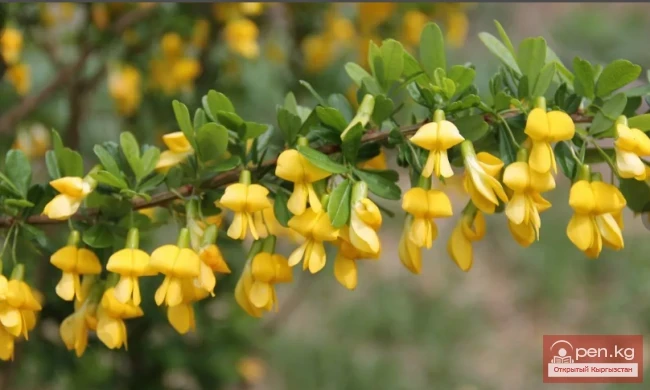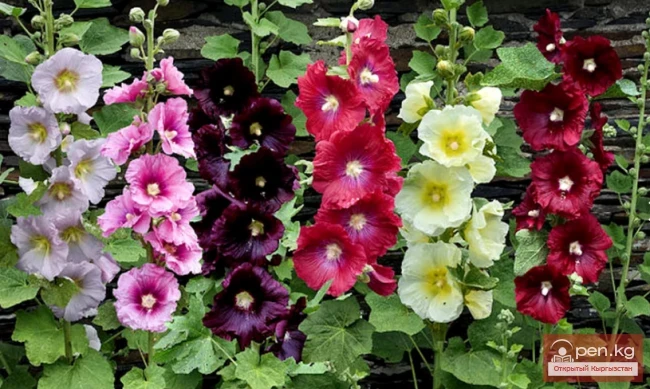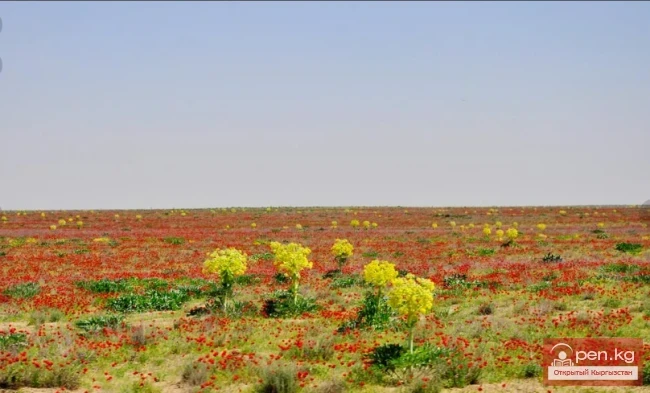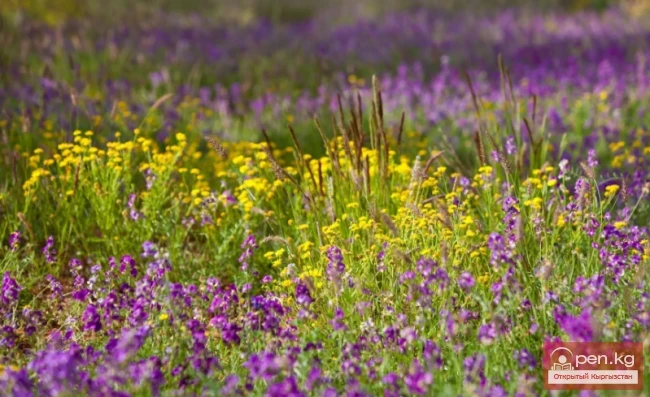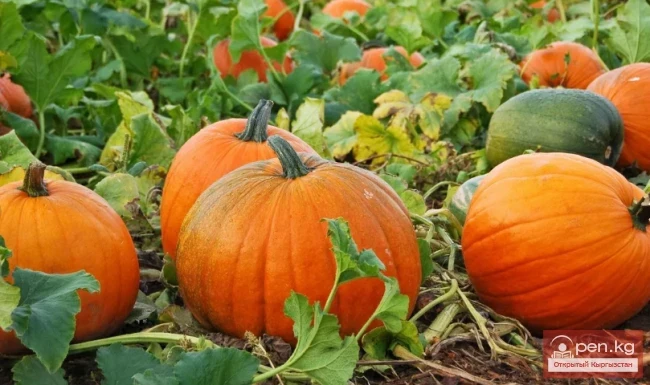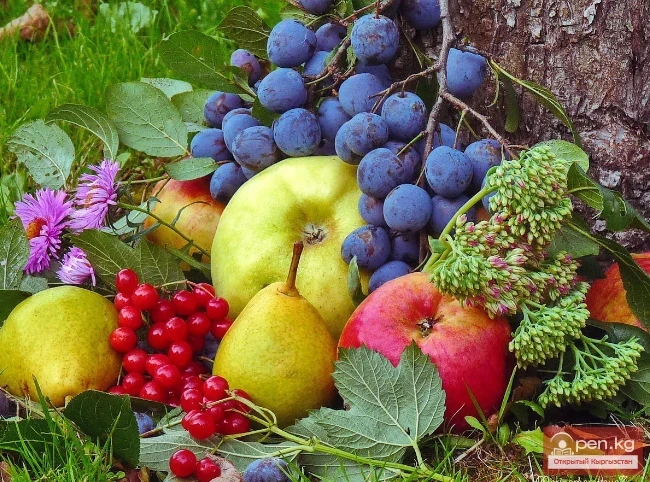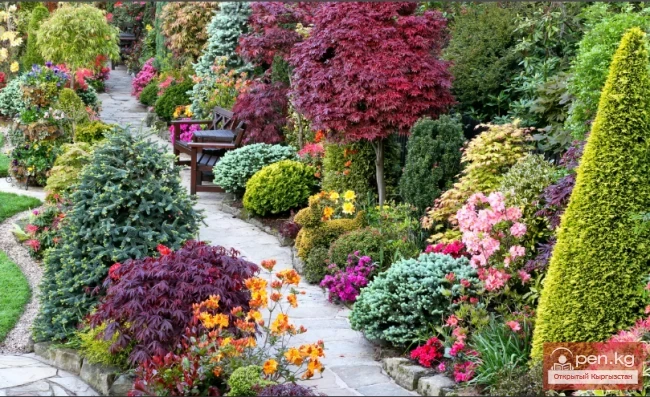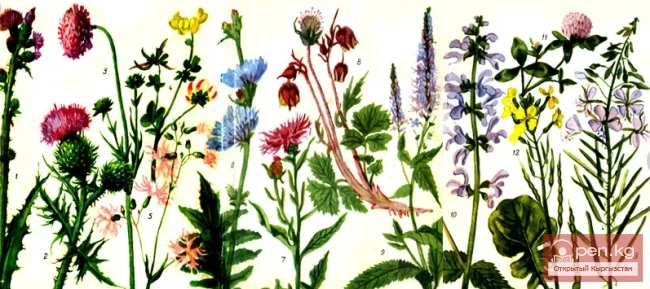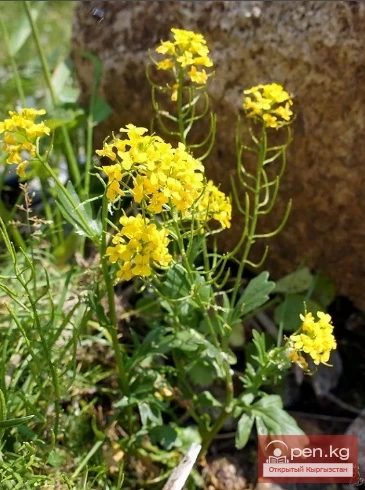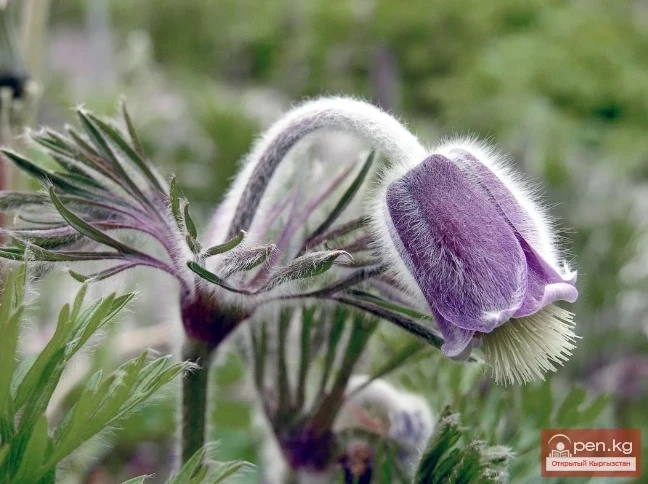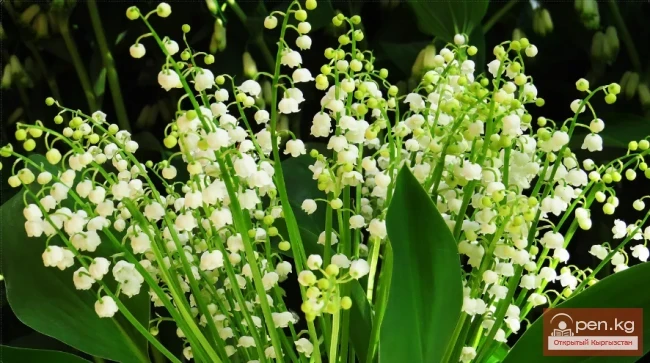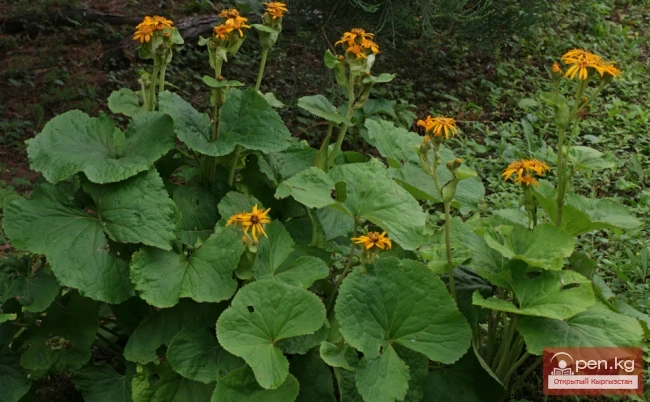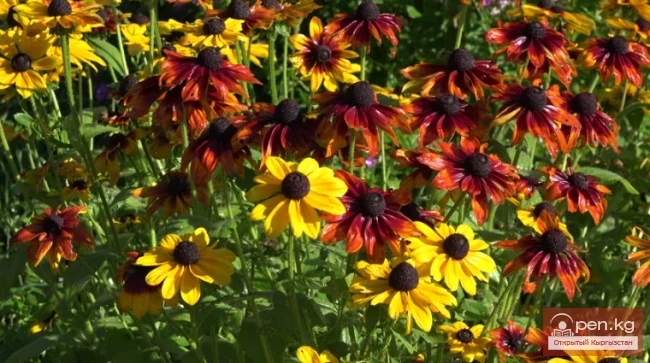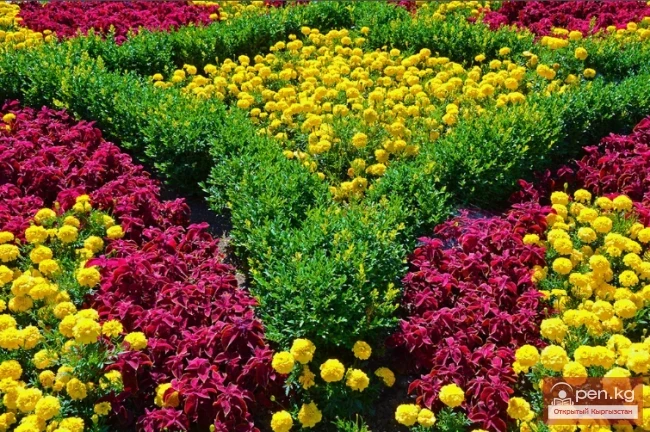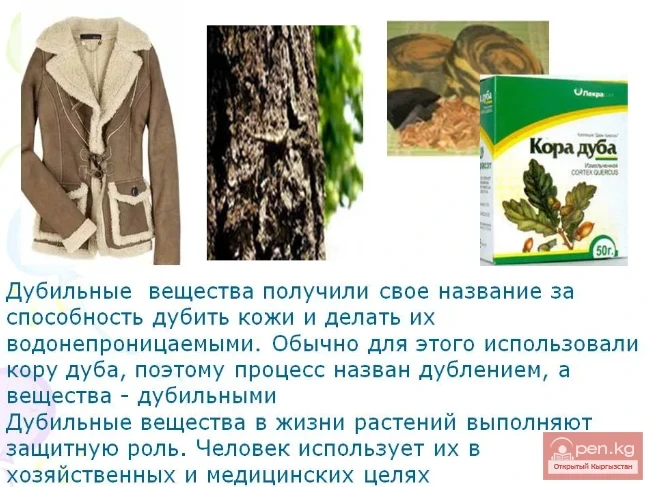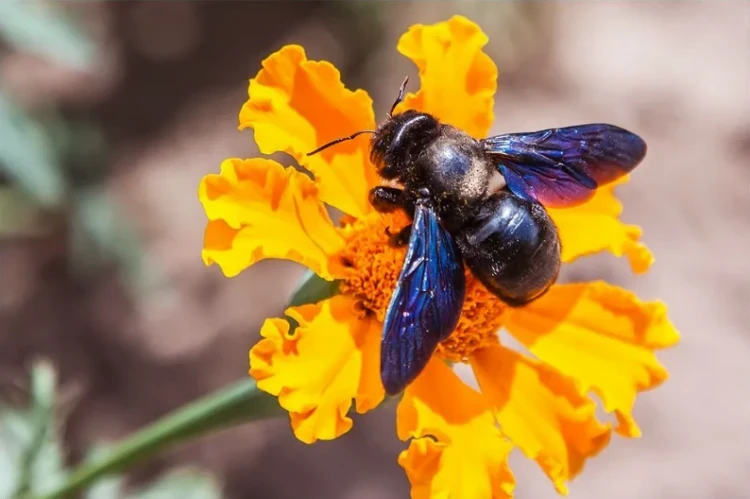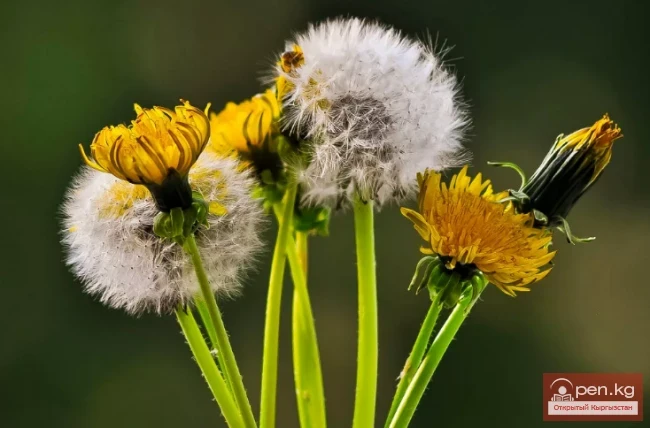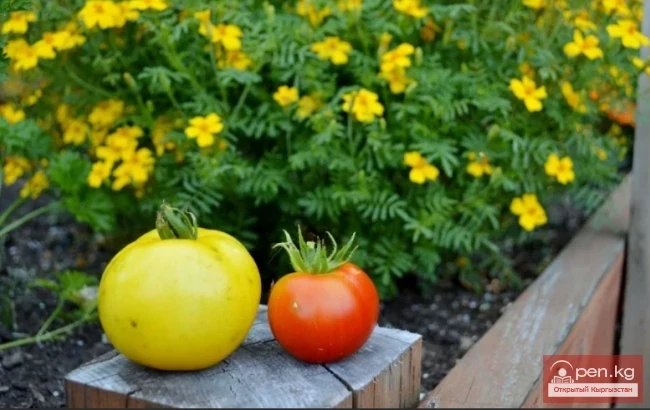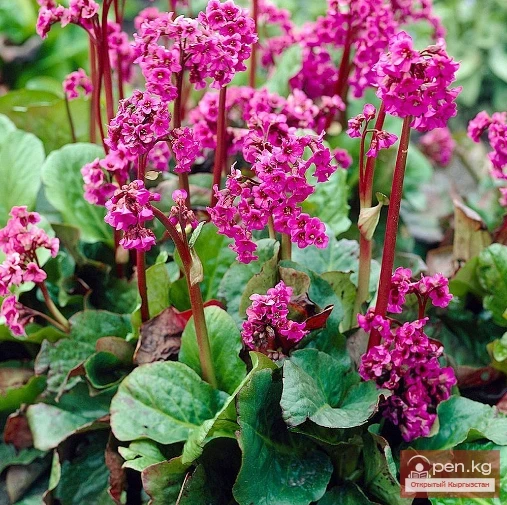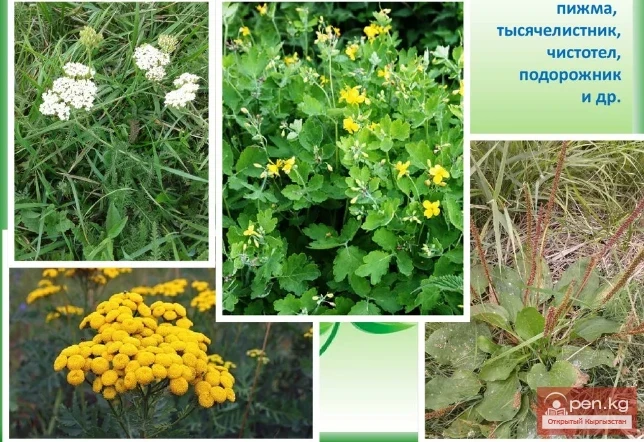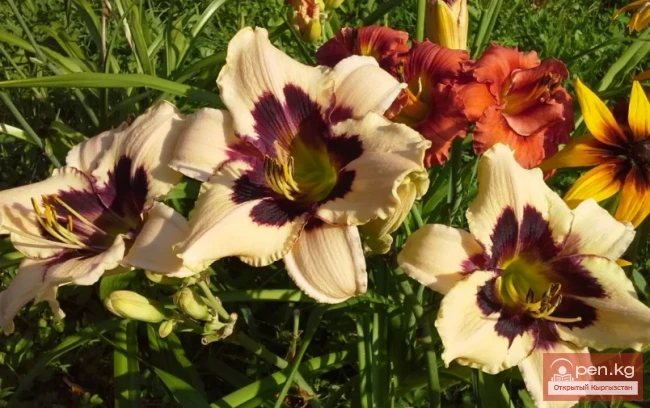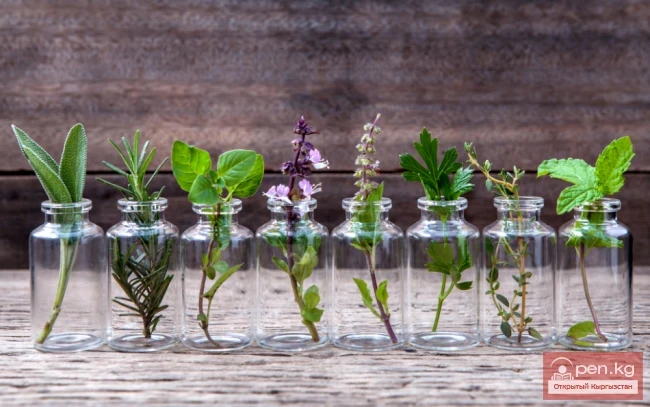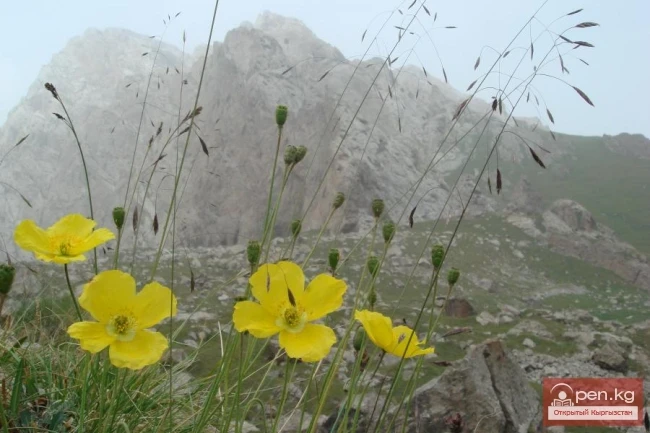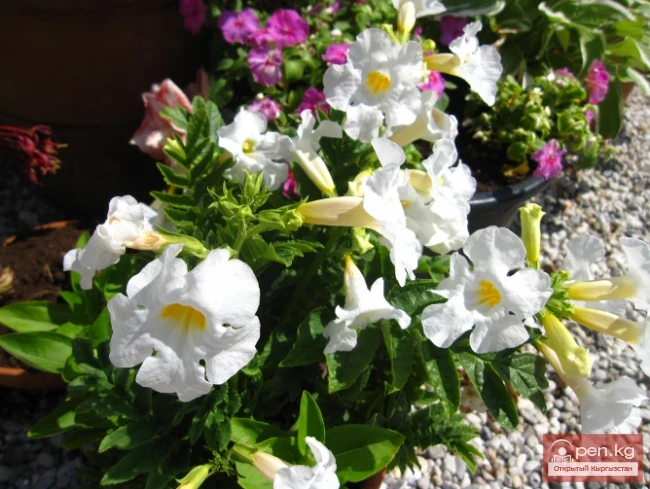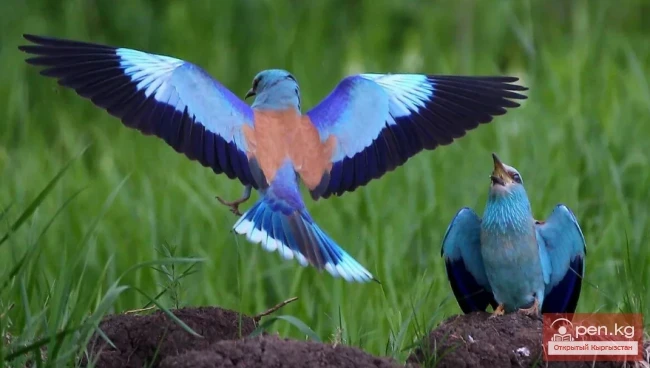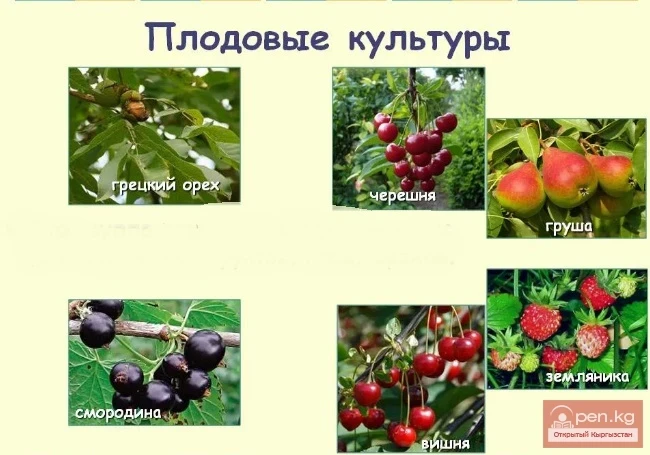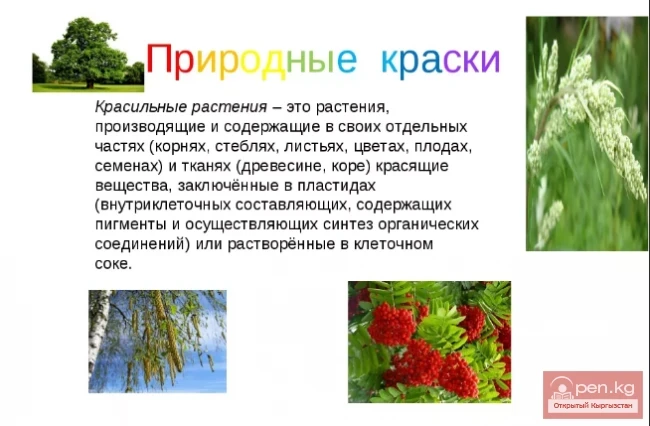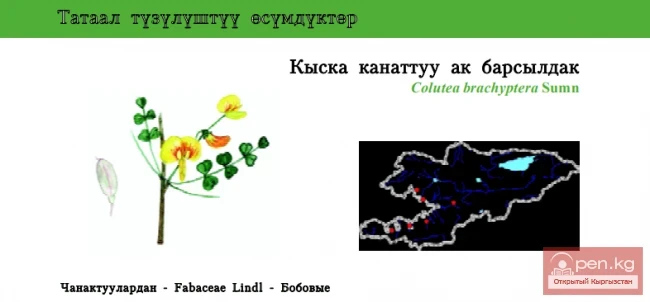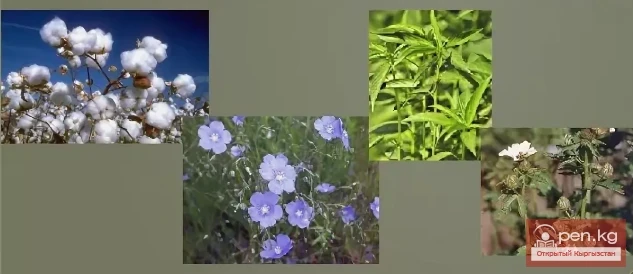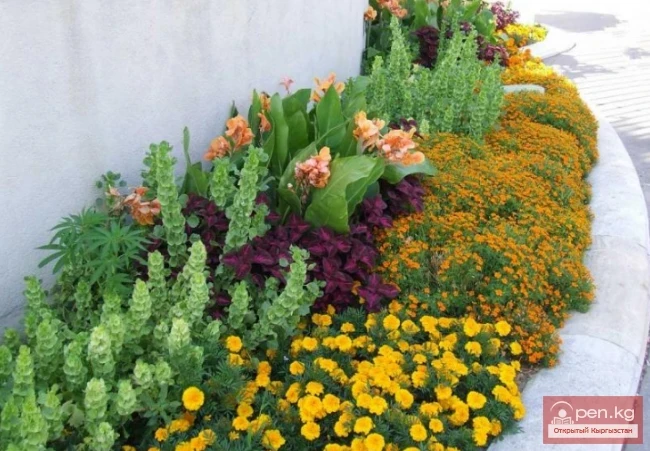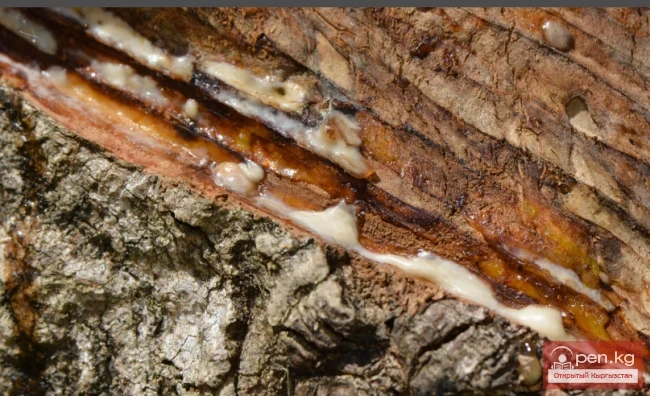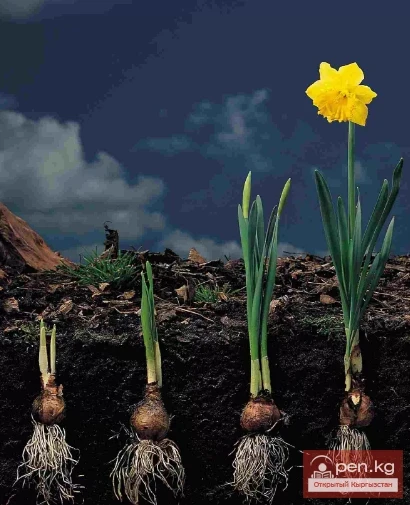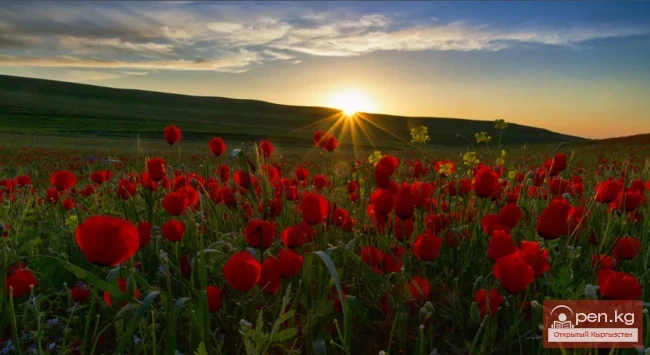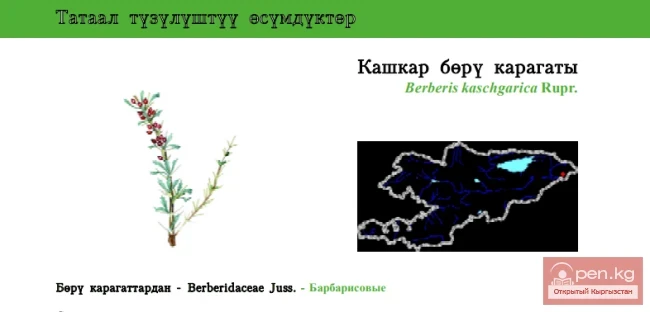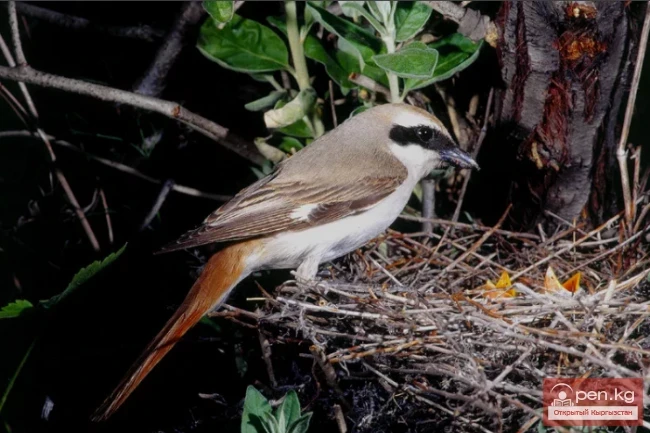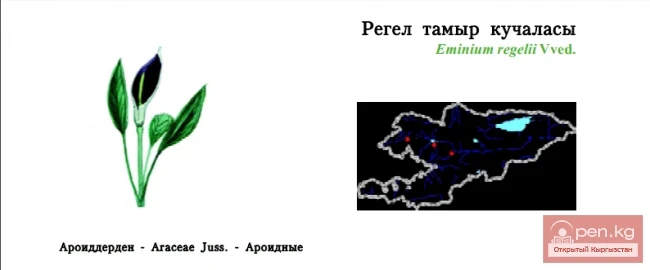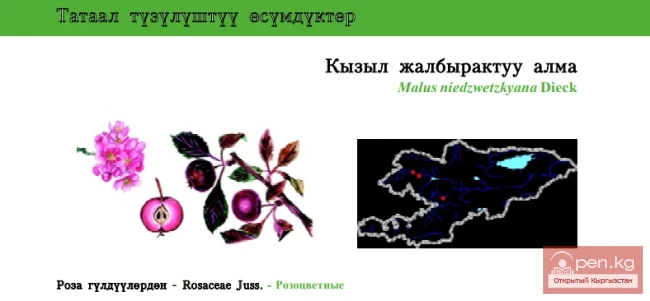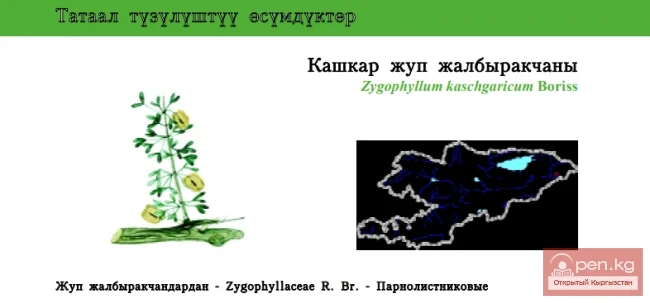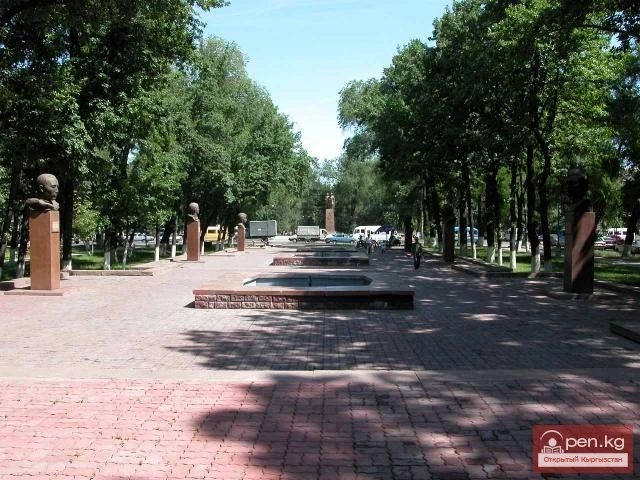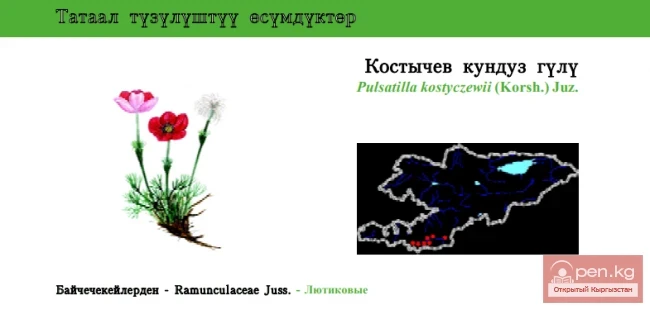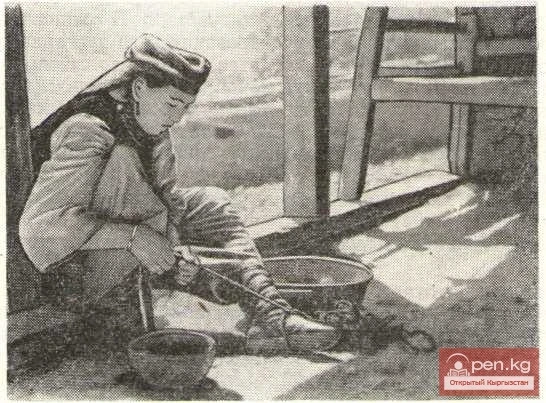Decorative Honey Plants and Perganos
Among the tree plantations in the agricultural zone, there are many honey plants and pergano plants. The most valuable are: white "false acacia," linden, gleditsia, yellow "acacia," elm, poplar, willow, maple, walnut, and others.
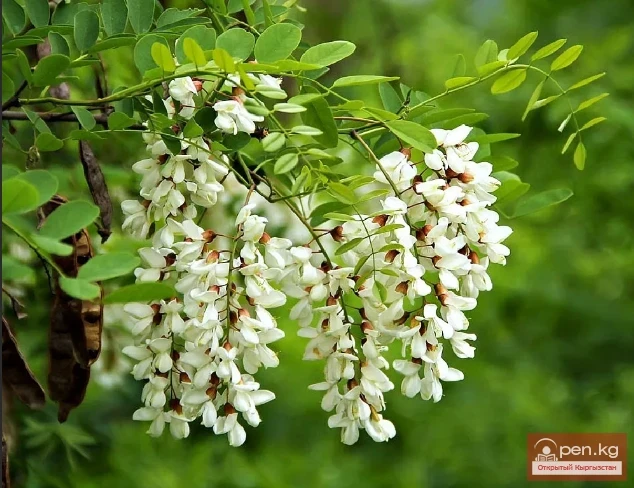
Robinia pseudoacacia, from the Fabaceae family. It is cultivated in street plantings in cities and towns of Kyrgyzstan, as well as along roads, in forest protective strips, in groves, parks, gardens, and squares, commonly known as "white acacia."
This tree reaches a height of 20-25 m in Kyrgyzstan, with pinnate, compound leaves and white or pink flowers. The flowers are fragrant, gathered in loose drooping racemes. It blooms abundantly in May and early June, with a flowering duration of 2-3 weeks. The flowers produce a lot of nectar. Bees can collect up to 8 kg of honey from one tree. The honey is white, almost colorless, has high taste qualities and a pleasant aroma; it crystallizes slowly, thus remaining liquid for a long time.
Gleditsia triacanthos, or honey locust, from the Fabaceae family. It is grown in cities and towns of Kyrgyzstan, in squares, parks, gardens, in protective forest strips, and along roads. This tree reaches a height of 12-13 m with a large number of simple and branched thorns 2-20 cm long, reddish-brown in color. The leaves are twice pinnate and lace-like.
The flowers are small, unisexual, inconspicuous, green; they have 3-5 sepals and 3-5 greenish petals, with 6 free stamens. The pods are flat, crescent-shaped, dark brown, up to 40 cm long; they hang on the tree for a long time after the leaves fall. The flowers contain a lot of nectar. The flowering lasts a long time, from May to August. Bees visit gleditsia and collect nectar and pollen.
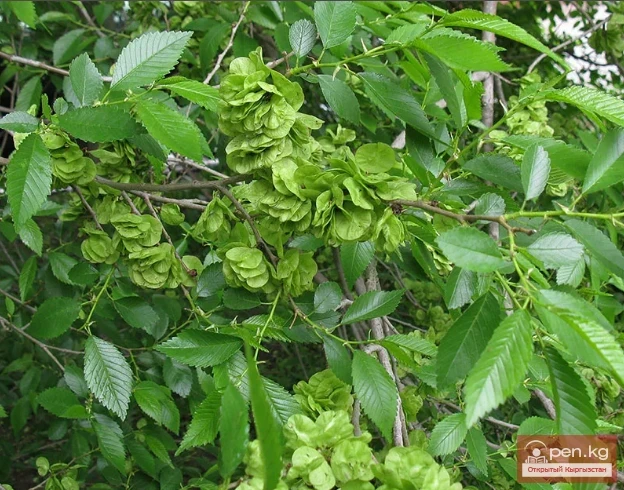
Elm or Ulmus glabra, from the Ulmaceae family. Elm is widely distributed in Kyrgyzstan.
It can be found in almost all small and large settlements. It is the main species for greening cities and towns, creating groves, parks, and protective forest strips. It is planted along roads. It tolerates various conditions well, can be trimmed, and provides good growth. Because of this, elm is used to create original alleys, where its crowns are shaped into balls, pyramids, and other figures. In the resort towns of the Caucasus and Crimea, figures of various animals are trimmed from the crowns of elms in street plantings, attracting tourists and evoking admiration.
Unlike other species of elm, the elm has a two-row pinnate arrangement of young shoots and small asymmetrical leaves with serrated edges.
The flowers are bisexual, inconspicuous, almost sessile, gathered in clusters. It blooms abundantly in March and April. In early spring, it produces a lot of pollen, nectar, and glue, making it a good honey plant.
However, many species of aphids settle on elm; they excrete honeydew, which is a source of honeydew honey. Recently, elm has been disappearing from settlements due to being infected with Dutch elm disease.
Laurel-leaved poplar, from the Salicaceae family. A tree 10-20 m tall with broad lanceolate leaves. It blooms in April. It grows along river valleys and mountain slopes in all regions of Kyrgyzstan. It is visited by bees that collect glue and pollen.
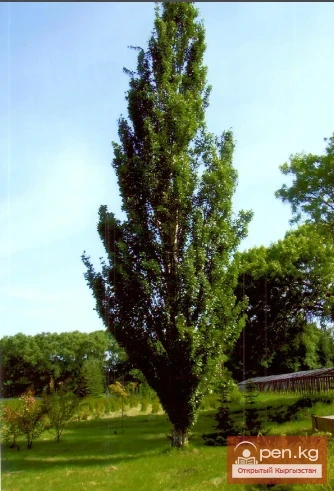
Pyramidal poplar, from the Salicaceae family. A tree 30 m tall with a narrow pyramidal crown. It blooms in March.
It is cultivated in settlements throughout Kyrgyzstan. It is eagerly visited by bees.
Black poplar, from the Salicaceae family. A tree 15-30 m tall with ovate-triangular leaves. It blooms in March.
It produces pollen and glue. It is grown in settlements. It grows wild along riverbanks on gravel and sandy shoals. It is an early spring pollen producer.

Balsam poplar, from the Salicaceae family. A tree up to 20 m tall with ovate leaves. It blooms in April, producing pollen, honeydew honey, and glue. It is cultivated in settlements. It is eagerly visited by bees.
Goat willow, from the Salicaceae family. A small tree 6-10 m tall with elliptical leaves. It blooms in March and April. It produces nectar, pollen, honeydew, and glue. It grows on mountain slopes and in river valleys in all regions of Kyrgyzstan. Occasionally cultivated.
An early spring good honey plant. Honey productivity is over 300 kg per hectare.
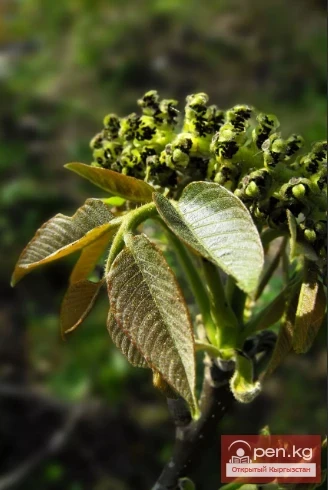
Walnut, from the Juglandaceae family. A large tree up to 20 m tall. It blooms in May. It produces pollen. It grows in southern Kyrgyzstan in the Chatkal and Fergana ranges, where it forms forests. It is also cultivated in the Chui Valley. A perganos plant.
Narrow-leaved saltbush, from the Chenopodiaceae family. A small tree up to 7 m tall with elongated lanceolate leaves, featuring fragrant silvery-white flowers. It blooms in May and June. It grows along riverbanks, in the Naryn, Jumgal, Kochkor, Fergana, Chui, and Talas valleys, and in the Issyk-Kul lake basin.
Yellow "acacia" or tree-like caragana, from the Fabaceae family. A shrub with yellow butterfly-type flowers. It blooms abundantly in May. It is cultivated in agricultural zones and on dry land.
Honey productivity is 300 kg per hectare.
White mulberry and black mulberry, from the Moraceae family. Trees with lobed leaves. They bloom in May. The flowers are inconspicuous. They produce pollen. During fruiting, bees gather honey from the fruits for 2-3 months.
They are grown in settlements and in cotton fields in southern Kyrgyzstan. They are eagerly visited by bees.
Hollyhock, from the Malvaceae family. A decorative perennial or biennial plant with large flowers.
It blooms from July to October. It produces a lot of nectar. It is cultivated as an ornamental plant in settlements.
A good honey plant.
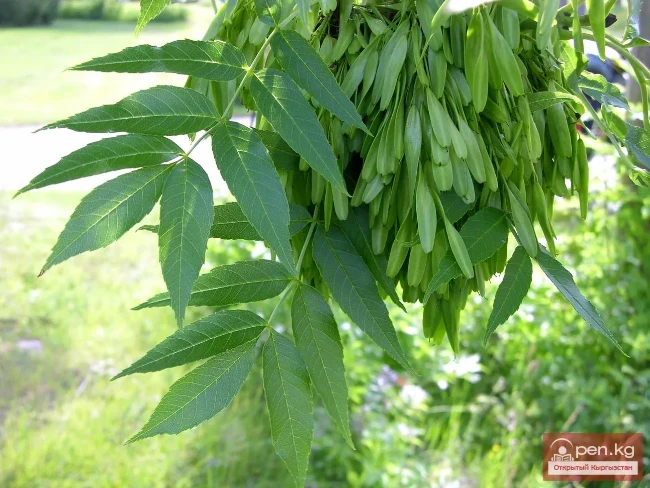
Common ash or Fraxinus excelsior, from the Oleaceae family. A tree up to 20 m tall with large pinnate leaves. It blooms in April and May. It produces pollen. It is cultivated in agricultural zones.
